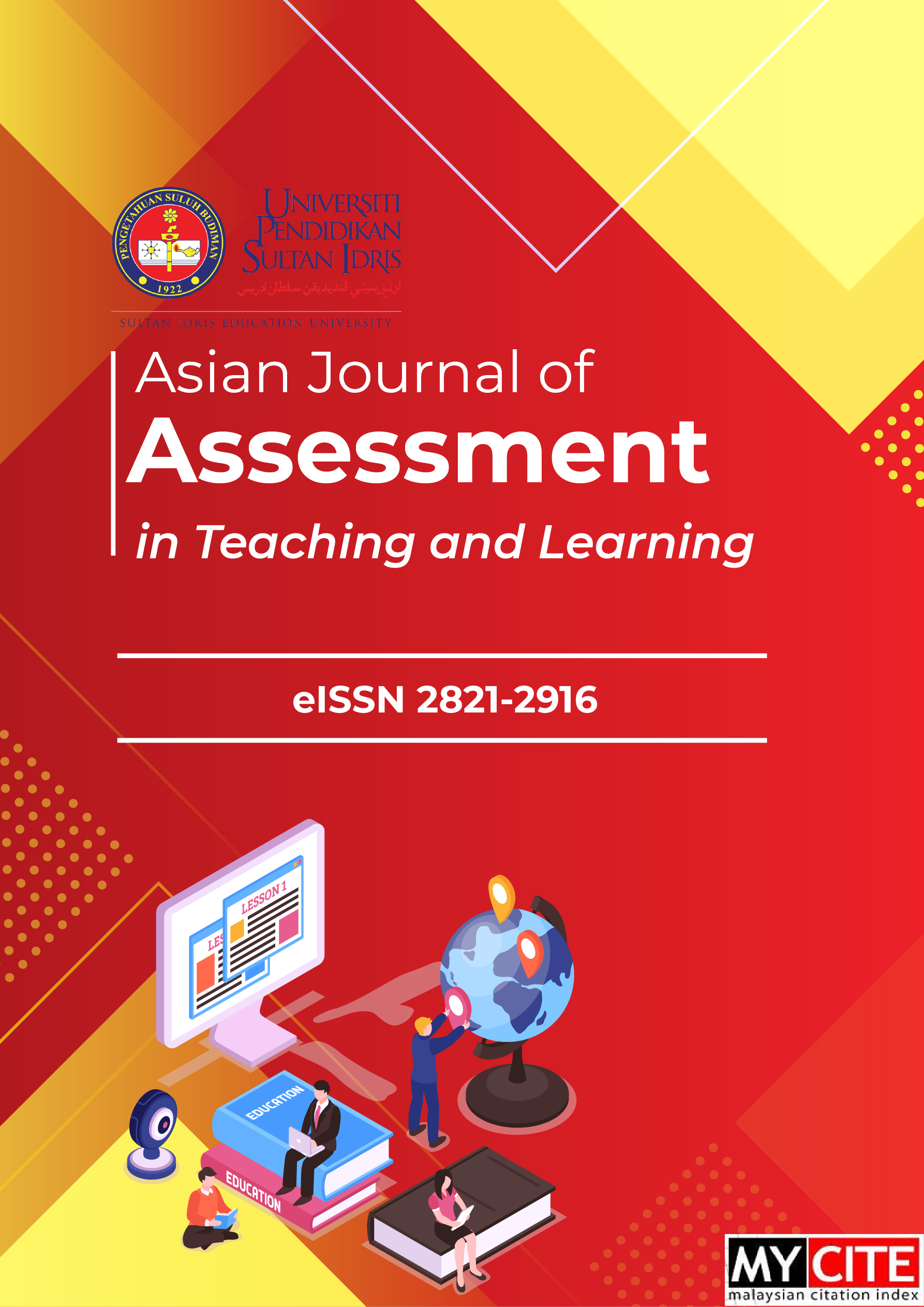The Effectiveness of the Guided Inquiry Learning Model and Jigsaw Towards Students' Natural Science Outcomes in Grade 4 Elementary School Gugus Pangeran Diponegoro, Demak District
DOI:
https://doi.org/10.37134/ajatel.vol12.2.5.2022Keywords:
Guided inquiry, jigsaw, learning outcomesAbstract
The results of this study are: 1) the guided inquiry learning model is more effective than the conventional model on the science learning outcomes of grade IV students on the material properties of light in the Prince Diponegoro Cluster, Demak District, as evidenced by the t-test, namely the t-hit value of 4.722. Because the value of t-hit > t-tab (4.722 >2.005) means that Ho is rejected and Ha is accepted, so hypothesis 1 is accepted, 2) the jigsaw learning model is more effective than the conventional model on the science learning outcomes of fourth grade students on the material properties of light in the Prince Diponegoro Group, Demak District, as evidenced by the t test, namely the t-hit value of 5.572. Because the value of t-hit > t-tab ((5.572 >2.018) means Ho is rejected and Ha is accepted, hypothesis 2 is accepted, 3) the jigsaw learning model is more effective than guided inquiry on the science learning outcomes of fourth graders on the material properties of light in the Prince Diponegoro Group, Demak District, as evidenced by the t-test, namely the t-hit value of 2.571. Because the value of t-hit > t-tab (2.571 >2.003) means that Ho is rejected and Ha is accepted, so hypothesis 3 is accepted.
Downloads
References
Aakvik, A., Salvanes, K. G., & Vaage, K. (2010). Measuring heterogeneity in the returns to education using an education reform. European Economic Review, 54(4), 483-500.
Alam, T. G. M. R. (2019). Comparative analysis between pre-test/post-test model and post-test-only model in achieving the learning outcomes. Pakistan Journal of Ophthalmology, 35(1).
Arora, A. K., & Srinivasan, R. (2020). Impact of pandemic COVID-19 on the teaching–learning process: A study of higher education teachers. Prabandhan: Indian journal of management, 13(4), 43-56.
Berger, R., & Hänze, M. (2015). Impact of expert teaching quality on novice academic performance in the jigsaw cooperative learning method. International Journal of Science Education, 37(2), 294-320.
Fong, C. J., Krou, M. R., Johnston-Ashton, K., Hoff, M. A., Lin, S., & Gonzales, C. (2021). LASSI's great adventure: A meta-analysis of the Learning and Study Strategies Inventory and academic outcomes. Educational Research Review, 34, 100407.
Juhji, J. (2016). Peningkatan keterampilan proses sains siswa melalui pendekatan inkuiri terbimbing. Jurnal Penelitian dan Pembelajaran IPA, 2(1), 58-70.
Sulfemi, W. B., & Kamalia, Y. (2020). Jigsaw Cooperative Learning Model Using Audiovisual Media To Improve Learning Outcomes. JPsd (Jurnal Pendidikan Sekolah Dasar), 6(1), 30-42.
Karacop, A., & Doymus, K. (2013). Effects of jigsaw cooperative learning and animation techniques on students’ understanding of chemical bonding and their conceptions of the particulate nature of matter. Journal of Science Education and Technology, 22(2), 186-203.
Mishra, D., & Min, J. (2010). Analyzing the relationship between dependent and independent variables in marketing: A comparison of multiple regression with path analysis. Available at SSRN 2259524.
Nadarajah, T., & A.R.Sivakumaran. (2021). 21ām nūṟṟāṇṭuk kalviyil cintaṉait tūṇṭal kaṟpittal muṟai [The inquiry method in 21st century education]. Muallim Journal of Social Sciences and Humanities, 6(1), 88-95. https://doi.org/10.33306/mjssh/181
Rabindarang, S. (2022). The Effectiveness of One Page 3P-PTA Method in Executing Final Year Project: A Study in Vocational Education. Asian Journal of Vocational Education And Humanities, 3(1), 1-7. https://doi.org/10.53797/ajvah.v3i1.1.2022
Tobi, H., & Kampen, J. K. (2018). Research design: the methodology for interdisciplinary research framework. Quality & quantity, 52(3), 1209-1225.
Triyanti, Murtono, & Sri, U. (2021). Problem Based Technology and Science Development to Improve Science Learning Outcomes in Elementary Schools. ANP Journal of Social Science and Humanities , 2(2), 151-156. https://doi.org/10.53797/anp.jssh.v2i2.21.2021
Wiley, J. L., Wiley, K. R., Intolubbe-Chmil, L., Bhuyan, D., & Acheson, K. (2021). A new, depth-based quantitative approach to assessing transformative learning. Journal of Transformative Education, 19(4), 400-420.
Zokirovna, O. D. (2020). The effectiveness of implementation of ICT in learning process. European Scholar Journal, 1(4), 9-11.
Downloads
Published
How to Cite
Issue
Section
License
Copyright (c) 2022 Fika Kurnia Dewi, Murtono Murtono, Fitri Budi Suryani

This work is licensed under a Creative Commons Attribution-NonCommercial-ShareAlike 4.0 International License.





